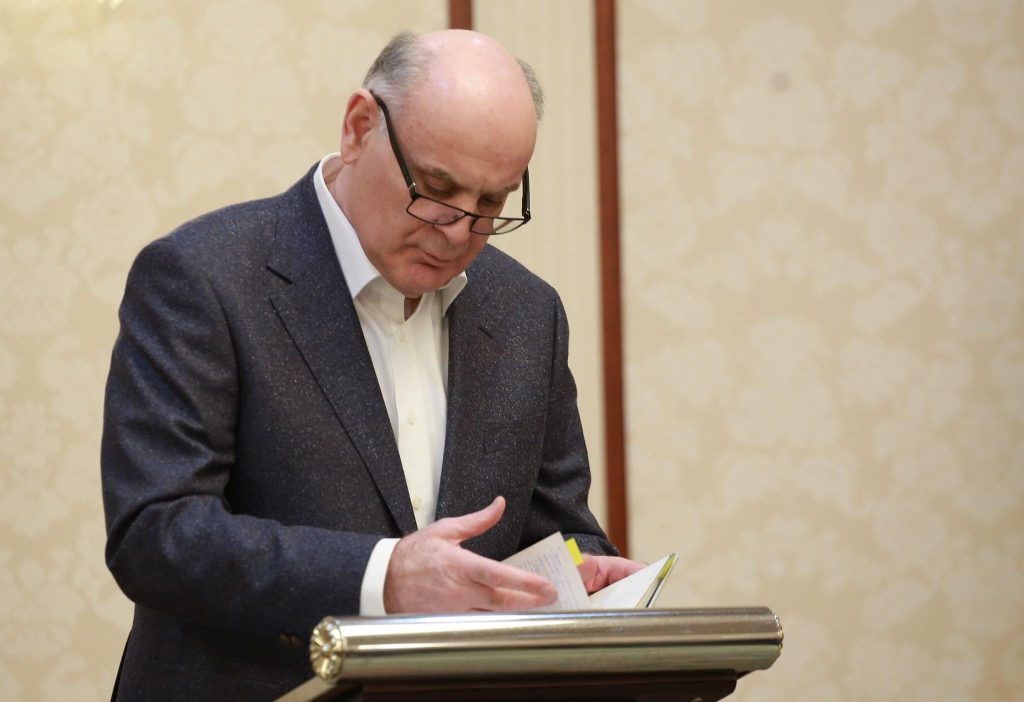Aslan Bzhania, Moscow-backed leader of Abkhazia, said at the March 9 meeting with Abkhaz “deputies” that his former aide Benur Kviraia’s controversial visit to Tbilisi was Kviraia’s “personal decision.”
Bzhania noted that Kviraia never received his permission to visit Georgia proper as his official representative, “being well aware” of the political consequences the trip could provoke.
Bzhania recalled his meeting with Kviraia before the visit to Georgia proper, telling him that “he could not travel to Tbilisi with the aide’s status.” “I knew that it would be impossible to conceal this visit,” Bzhania added.
Discussing the public criticism of Kviraia’s trip, Abkhaz leader further noted that there is no law against visiting Tbilisi in Abkhazia. Bzhania presented the statistical document of the persons departing for Georgia proper from Abkhazia, including ethnic Abkhaz, adding that “some people travel there for medical treatment.”
Benur Kviraia’s recent trip to Tbilisi induced public outcry in Abkhazia, with scores of the Abkhaz opposition supporters gathering in downtown Sokhumi to protest the visit. Kviraia – who reportedly resigned from his post before visiting Tbilisi – himself explained after the outcry that he visited the Georgian capital in his private capacity to attract investments for Abkhazia.
Controversial “Foreign Policy Concept”
Besides Kviraia’s trip, the Abkhaz leader also discussed the new ‘foreign policy concept’ adopted in December 2020, which sparked protests in the occupied region for the clauses involving dialogue and normalization of relations with Tbilisi.
Bzhania noted that his administration is ready to remove the term “multilevel negotiations with Tbilisi” from the document if the Abkhaz “parliament” presents the corrected version of the concept.
The controversial ‘foreign concept’ includes passages on “resolution of the Georgian-Abkhaz conflict and normalization of relations with Georgia” and “strengthening peace and stability in the Caucasus region.” The discontented Abkhaz hardliners argue that no negotiations with Tbilisi can take place before it recognizes Sokhumi’s independence.
This post is also available in: ქართული (Georgian) Русский (Russian)

